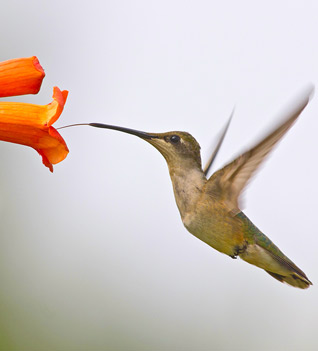Faith
What I, a Unitarian Universalist, Learned from Sikhism
CAREY McDONALD
I write not as an expert but as an explorer.
Many years ago, I tumbled into the Sikh faith at the recommendation of a close friend … Comparative religionist Wendy Doniger observes how often we temporarily fish off a neighbor’s dock only to later return to our own native harbor better able to catch the fish that were always swimming beneath our feet.
How true.
Over time, the window that Sikhism opened for me into the sacred has become a mirror in which to reflect on my own tradition. I share the following observations in a spirit of deep gratitude. Sikhism has never been a tool for self-analysis so much as a gift of self-discovery.
Will we feel?It is one thing to understand truth intellectually; it is another thing to understand it emotionally.
The holy scripture of the Sikhs comprises poetic verse set to music. Gurbani kirtan, one of the core communal practices, is the sung recitation of these stanzas. Each has a set melodic expression known as a raag, or ‘color,’ intended to evoke a full-bodied response. Some are upbeat and hence uplifting, others contemplative, even sorrowful.
Some invoke the experience of delighting in God, others the pain of separation. The breadth of these spiritual moods poses the question: what if we valued the emotional effect of words as much as their cognitive content?
Will we practice?
It is one thing to posit lofty ideals; it is another thing to practice them.
Sikhs regularly gather to share in a communal meal known as langar. Regardless of age, gender, race, class, or profession, all participants sit shoulder to shoulder on the floor, cross-legged, eating a simple vegetarian meal prepared by fellow members of the community. Each person is encouraged to serve and be served.
Some cook, others clean.
The ritual rehearses the reality to which Sikhs aspire. In the words of Guru Nanak: ‘Truth is higher than all; but higher still is truthful living.’
This subversive yet playful custom of egalitarian eating challenges us to reflect: what regular practices help us habituate the values we espouse?…
Will we weep?
It is one thing to tolerate, even embrace, difference; it is another thing to sacrifice for it.
Amidst the forced conversion of Hindu neighbors during the seventeenth century, the ninth Sikh Guru, Tegh Bahadar, is said to have rebuked the Mughal Emperor for such spiritual violence: ‘Hinduism may not be my faith, but I will fight for the right of all people, including Hindus, to live with honor and practice their faith of choice.’
Locked in an iron cage and starved for days on end, Guru Bahadar was eventually publicly beheaded.
His memory asks us to consider: to what extent do we consent to truly feel another’s pain, even risk our comfort to confront another’s oppression?
Will we wonder?
It is one thing to doubt one’s faith; it is another thing to have a faith that doubts.
Guru Nanak described God as a living contradiction, at once knowable and unknowable, a formless form, a nameless name. The sacred is simultaneously manifest and unmanifest, sargun and nirgun. Perhaps the scripture expresses this paradox best:
‘The more you say about God, the more there still remains to be said.’
Here, doubt is not a weapon to be used against religion, supposedly dethroning God, but rather a deep expression of one’s relationship with God. We can touch the Absolute, but will never fully grasp it.
Humility is the key, raising the question: where does wonder fit into our theological worldview?
Will we experience?
It is one thing to encounter the divine individually; it is another thing to encounter the divine together.
Sikhs refer to their house of worship as the Gurdwara, or the door to the Guru. No wonder. I have never felt the presence of God so intimately as when worshipping with other Sikhs.
And yet, the experience is always markedly public, not private. We sing the same lyrics, chant the same lines of scripture, utter the same words of prayer. We’re in it together, reaching out to God as one. The religious community, or sangat, has a central role in Sikh tradition.
‘Just as the fire is contained in all firewood and butter is contained in all milk,’ the scripture insists, so too God is present in the gathered congregation. The best way to ‘become attached to the Love of the One’ is in community.
I am left wondering: what space do we make for communal experiences of the sacred?
* * * * *
Unitarian Universalism is my universe. I feel deeply grateful to minister in this transformative tradition. And I do so with Guru Nanak’s blessing: ‘Do not say that the Vedas, the Bible and the Koran are false. Those who do not contemplate them are false.’
[Courtesy: Blue Boat. Edited for sikhchic.com]
October 14, 2012
Conversation about this article
1: G.P. Singh (San Antonio, Texas, USA), October 14, 2012, 9:32 AM.
An awesome way to summarize the Sikh faith. Thank you.
2: Nina Singh (New York, USA), October 14, 2012, 4:42 PM.
Great article. I have never seen such a wonderful way to describe Sikhism (comprehensive but brief, understandable and so accurate.) I love it. Many, many thanks.
3: Sangat Singh (Kuala Lumpur, Malaysia), October 14, 2012, 7:53 PM.
Carey ji, may I commend the following site: http://www.sikhchic.com/faith/guru_granth_sahib_a_model_for_interfaith_understanding It augment's your own wonderful piece excellently.
4: Rosalia (Baltimore, Maryland, USA), October 16, 2012, 5:11 PM.
What a beautiful article! I am not Sikh but perhaps could be.
5: Jaswinder Kaur (United Kingdom), October 18, 2012, 3:26 AM.
Carey, thank you for a beautiful piece of contemplative prose on some of the core tenets of the Sikh faith. Looking at it through your eyes, it has opened a few doors for me as well.




